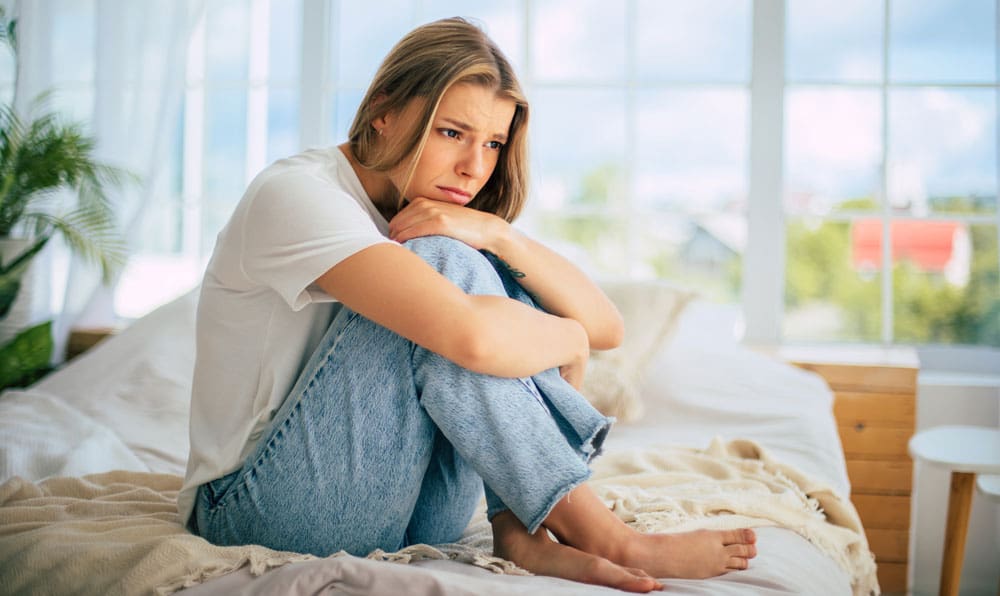Depression drags you down. Anxiety keeps you spinning. Substance use offers a temporary escape. When all three collide, it can feel like you’re drowning with no lifeline in sight.
But here’s the truth: there is a way out. You are not alone. And you don’t have to carry this weight by yourself.
Let’s break down why this trio is so dangerous—and how you can begin to reclaim your life.
What Happens When Depression Isn’t Just Sadness Anymore?
Depression isn’t just a bad mood or a few hard days. It’s an invisible fog that blurs your vision, numbs your joy, and whispers lies like, “You’ll never get better.” It makes basic tasks feel like climbing Everest in cement shoes. You may feel emotionally flat, physically drained, or like the world is happening without you.
It’s more than sadness—it’s disconnection. From yourself, your goals, your hope.
Think of Harry Potter in The Order of the Phoenix, haunted by dark thoughts and convinced he’s becoming the villain. That’s what depression can do: twist your sense of identity and steal your light. But even Harry found support. You can, too.
Why Does Anxiety Make Everything Feel Like a Threat?
Anxiety is the brain’s alarm system—except when it’s stuck in the “on” position. It floods you with what-ifs and worst-case scenarios. It makes you question everything you do and everyone around you. And when it teams up with depression, the results can be devastating.
You’re exhausted from worrying, but too hopeless to act. You want to do something, but fear and self-doubt keep you frozen.
Is Substance Use Helping—or Making Things Worse?
When you’re hurting, a drink or a pill might feel like relief. But here’s the trap: substance use offers escape without healing. It numbs pain, but also blocks joy, deepens depression, and ramps up anxiety.
In fact, according to the Substance Abuse and Mental Health Services Administration (SAMHSA), nearly 50% of people with a mental illness also struggle with addiction. It’s called a dual diagnosis, and it doesn’t mean you’re broken—it means you’re human, trying to survive the best way you know how.
But survival is not the same as healing. And there are better tools out there.
Why Do These Three Conditions Raise Suicide Risk So Dramatically?
Each one of these—depression, anxiety, and substance use—can overwhelm your ability to cope. But together, they become especially dangerous. Why?
- Depression says, “You’re worthless.”
- Anxiety says, “You’ll never fix this.”
- Substance use says, “Don’t feel anything.”
That trio shuts down your hope, clouds your judgment, and increases impulsivity—all major risk factors for suicide. And when the pain becomes constant, the brain may start to mistake death for relief.
But suicide is not the solution. Thoughts of self-harm are a sign that your suffering needs urgent care.
What Can Actually Help?
If you’re thinking about ending your life, hurting yourself, or you feel completely overwhelmed and unsafe—call 911 for immediate assistance. This is an emergency. First responders are there to keep you safe, not to judge you. Let someone step in and help you through this moment.
After your immediate condition is stabilized, long-term healing happens when all parts of the problem are addressed together. At Raleigh Oaks Behavioral Health in Garner, North Carolina, we use integrated, trauma-informed care that treats the root causes of anxiety, depression, and substance abuse—not just the symptoms.
Here’s what that can look like:
- Therapy. Eye Movement Desensitization and Reprocessing (EMDR) helps you safely process painful memories without reliving them, while Cognitive Behavioral Therapy (CBT) challenges the negative thoughts that keep you stuck. Together, these therapies help you understand your triggers and build healthier, more empowering patterns of thinking.
- Medication. When prescribed thoughtfully, medication can stabilize mood, reduce anxiety, curb cravings, and help you fully engage in your healing journey. It’s not about numbing your emotions. It’s about giving your brain a fighting chance to feel balanced and calm.
- Peer support groups. These groups connect you with people who understand what it’s like to live with anxiety, depression, or addiction. Sharing stories and progress in a safe, judgment-free space reduces shame and reminds you that you are never alone.
- Lifestyle guidance. Your mind and body are deeply connected, and small physical changes can lead to big emotional shifts. Learning how to fuel your body, move with intention, and rest deeply builds resilience from the inside out.
Ready to learn more? We offer 24/7 confidential assessments and compassionate treatment designed for people like you. Whether you’re struggling to hold on or ready to reach out, we’re here.





